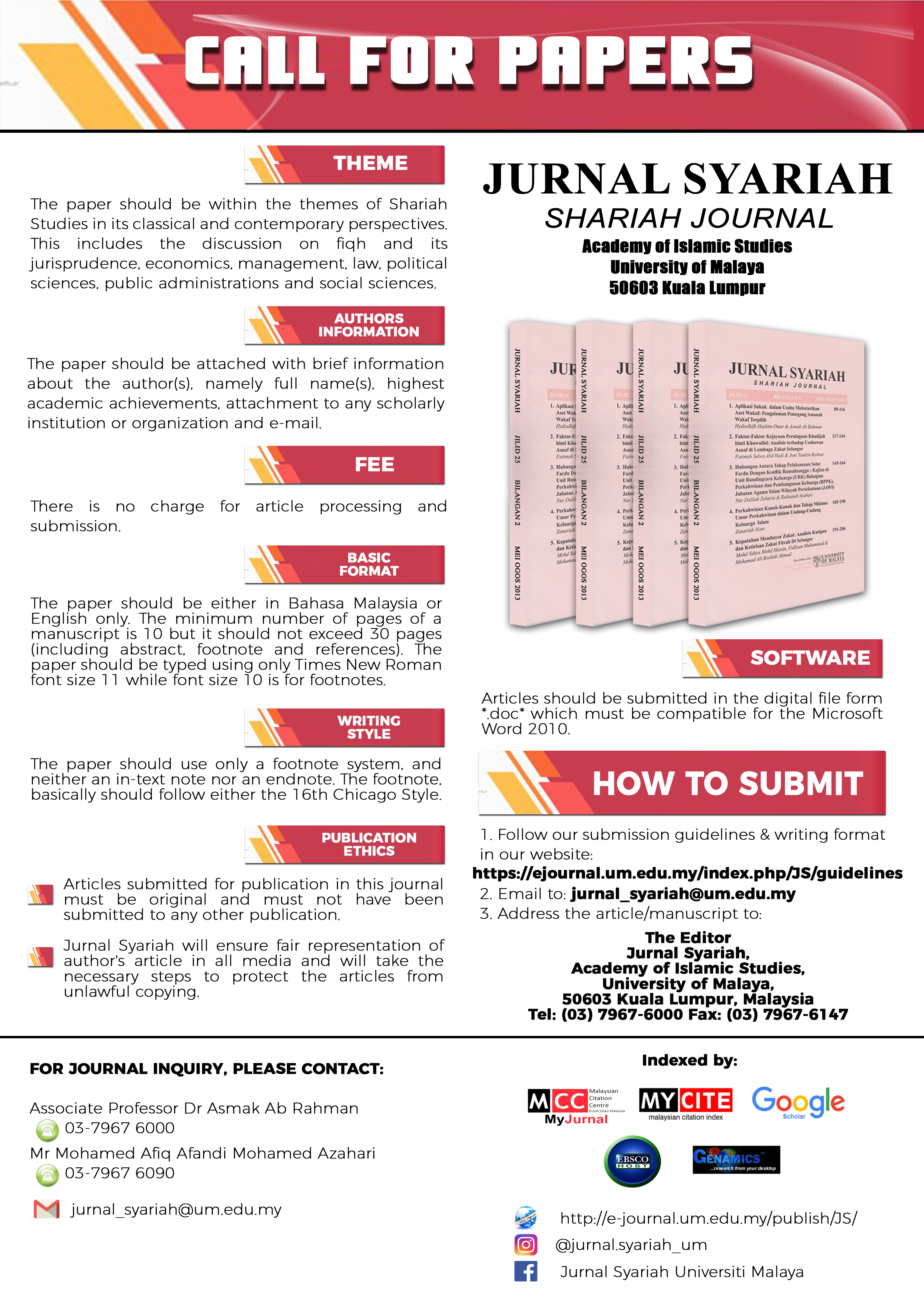THE CULMINATION OF INTEREST INTO OVER-INDEBTEDNESS WITHIN THE SOUTH AFRICA CONTEXT: A REFLECTION OF ISLAMIC FINANCE AND BANKING
Abstract
The current system of lending and borrowing on interest is, to a large extent, responsible for the present economic woes of the Western capitalist world. In a credit agreement, an agreement for the loan of money, there is invariably an inequality between the credit lender and credit borrower. Given the considerable imbalance, many South African consumers have concluded unaffordable credit contracts, which have resulted in their over-indebtedness. As stated in this study, mechanisms such as the National Credit Act 34/2005 and the in duplum rule are not able to prevent over-indebtedness, because over-indebtedness is the result of borrowing at interest. The provisioning of debt counsellors by the National Credit Act has resulted in additional cost for the already over-indebted consumer. Notwithstanding the existence of the National Credit Act and the in duplum rule, the industry was and remains largely unregulated and malpractices are rife. This situation has generated an interest in Islamic economics and has fuelled a debate about the possibility of survival for a modern economy without interest. The elimination of interest under Islamic tools like zakah, sadaqah, mudarabah and musharakah will act as a countervailing force against the cumulative debt problem facing all nations. The Islamic economy could make a useful contribution to the prevention of over-indebtedness. The practice of doing business on a non-interest basis has finally come of age.
Downloads
Downloads
Published
How to Cite
Issue
Section
License
COPYRIGHT: All rights reserved. Not allowed to be reproduced any part of articles and contents of this journal in any form or by any way, whether electronic, mechanical, photocopying, recording or otherwise without permission in writing from the Chief Editor, Jurnal Syariah.



















